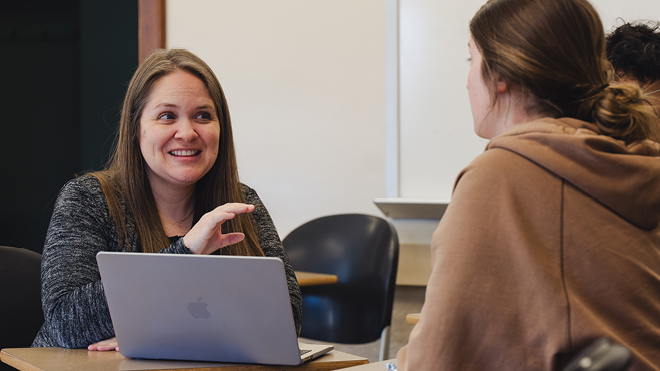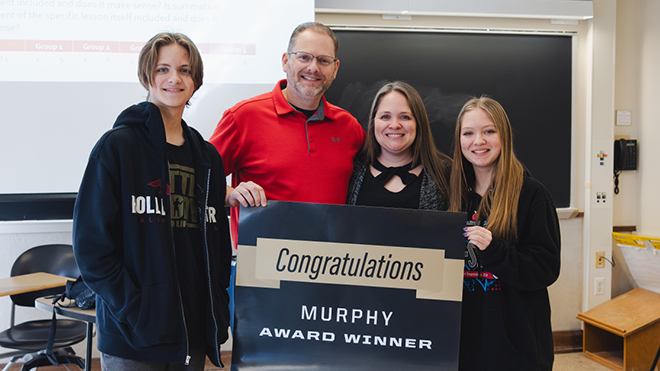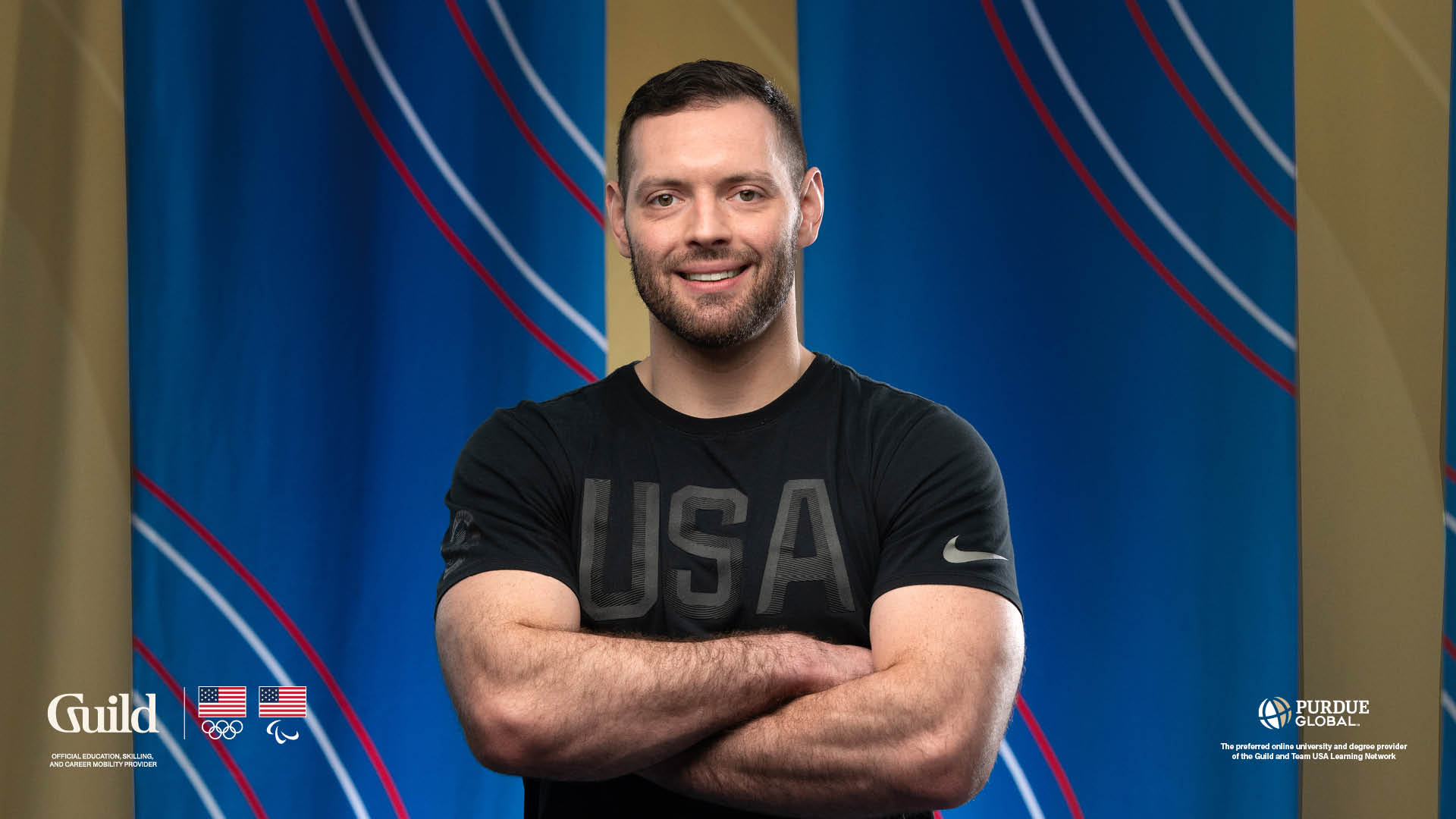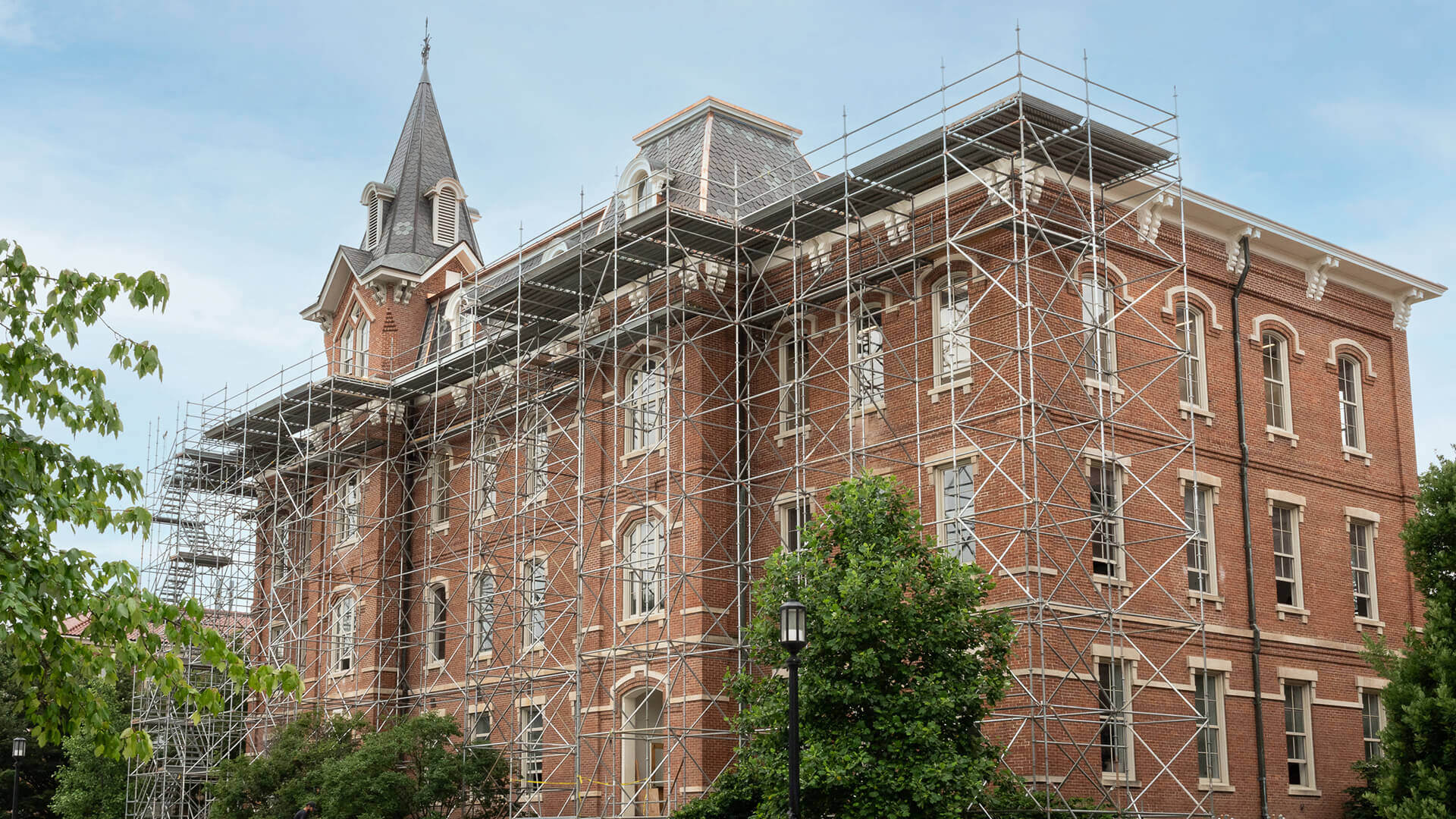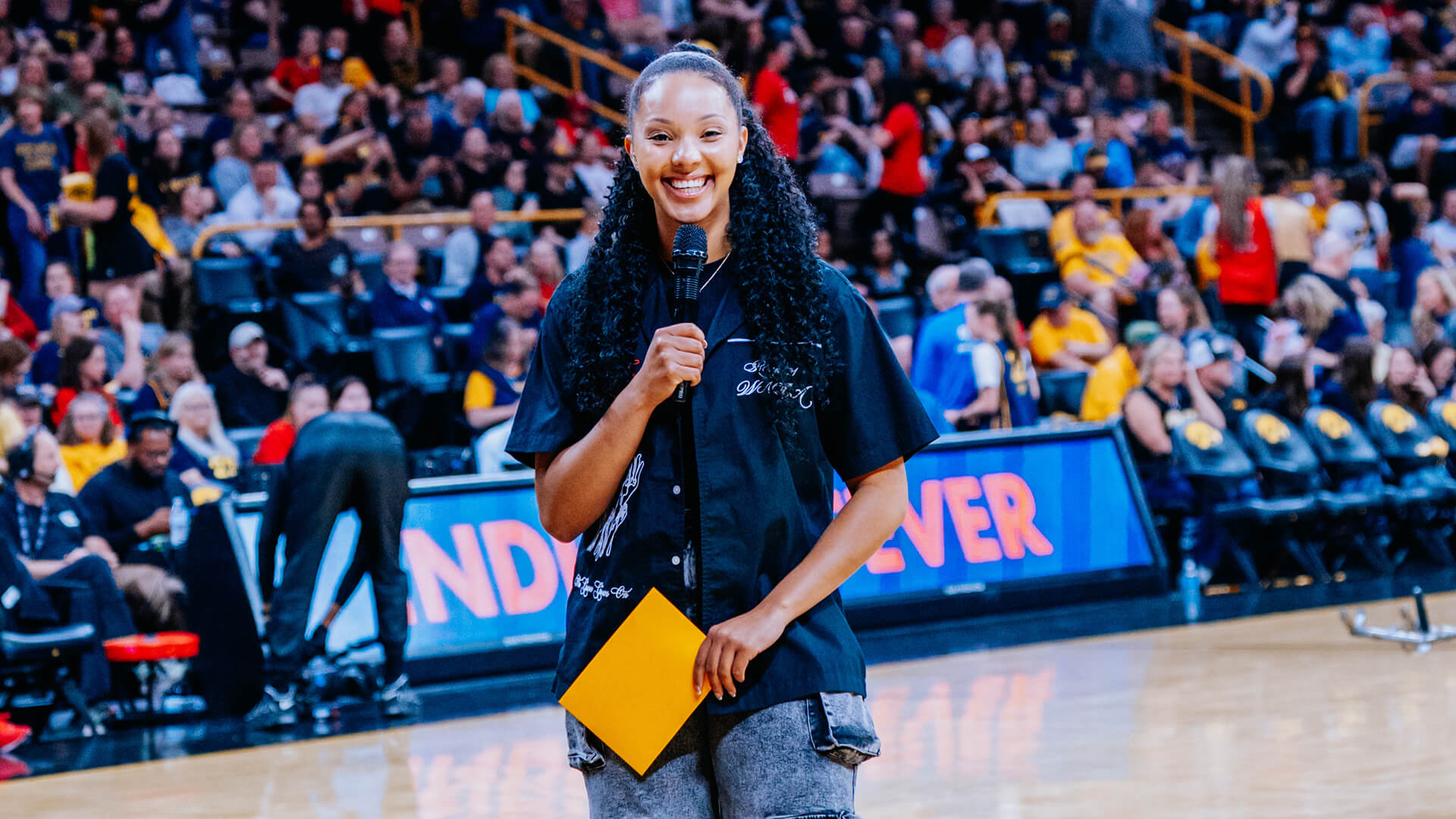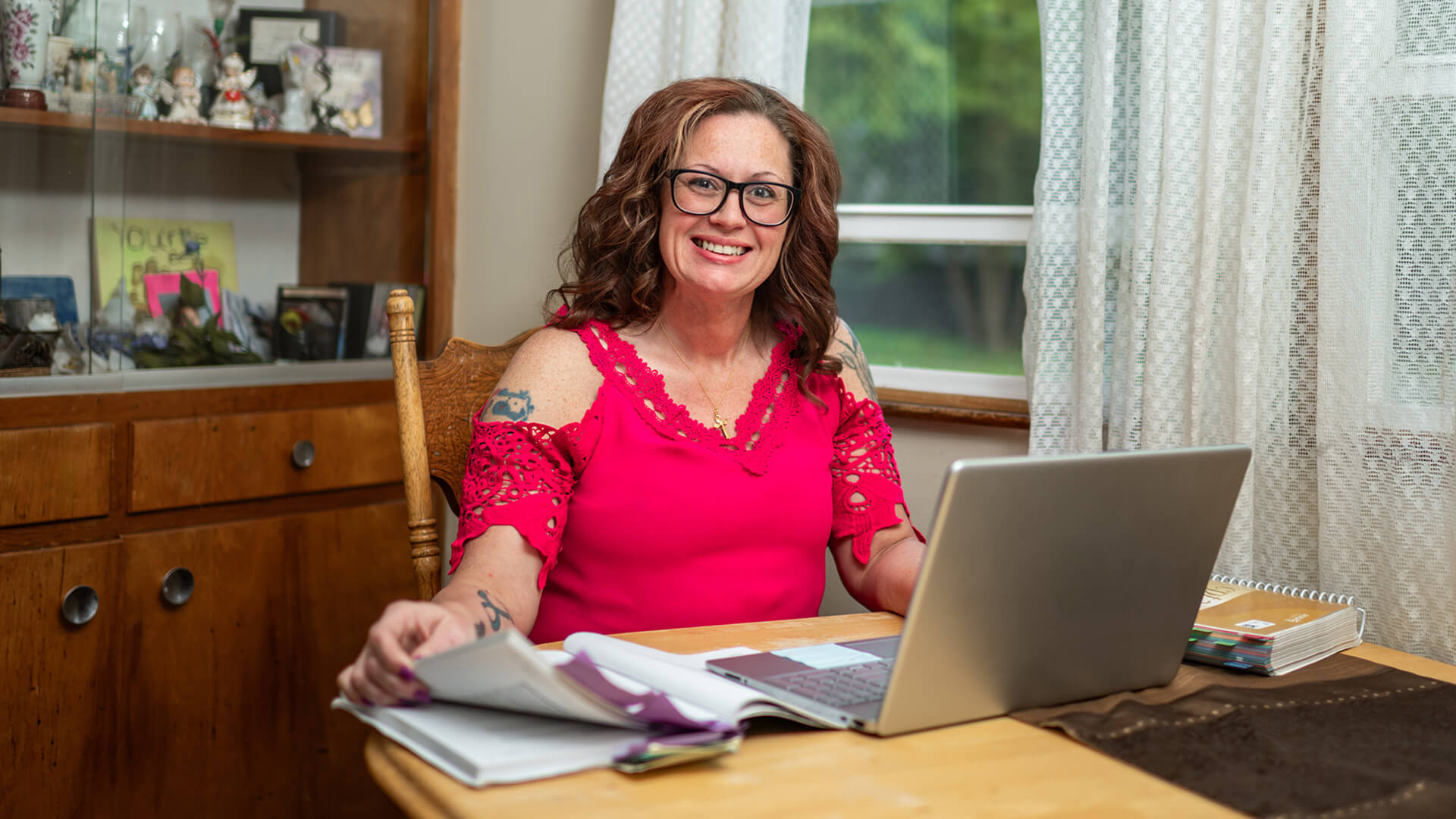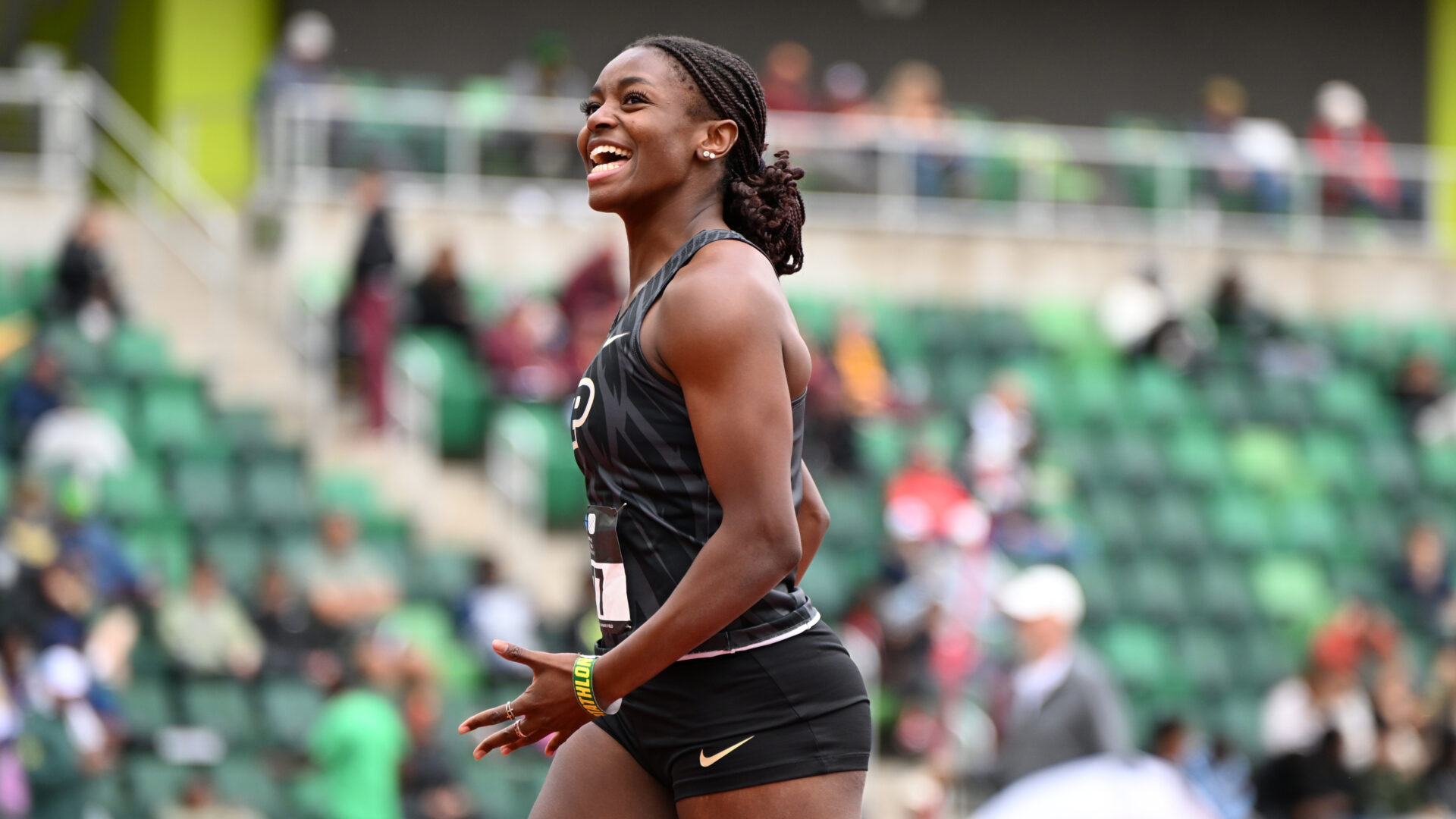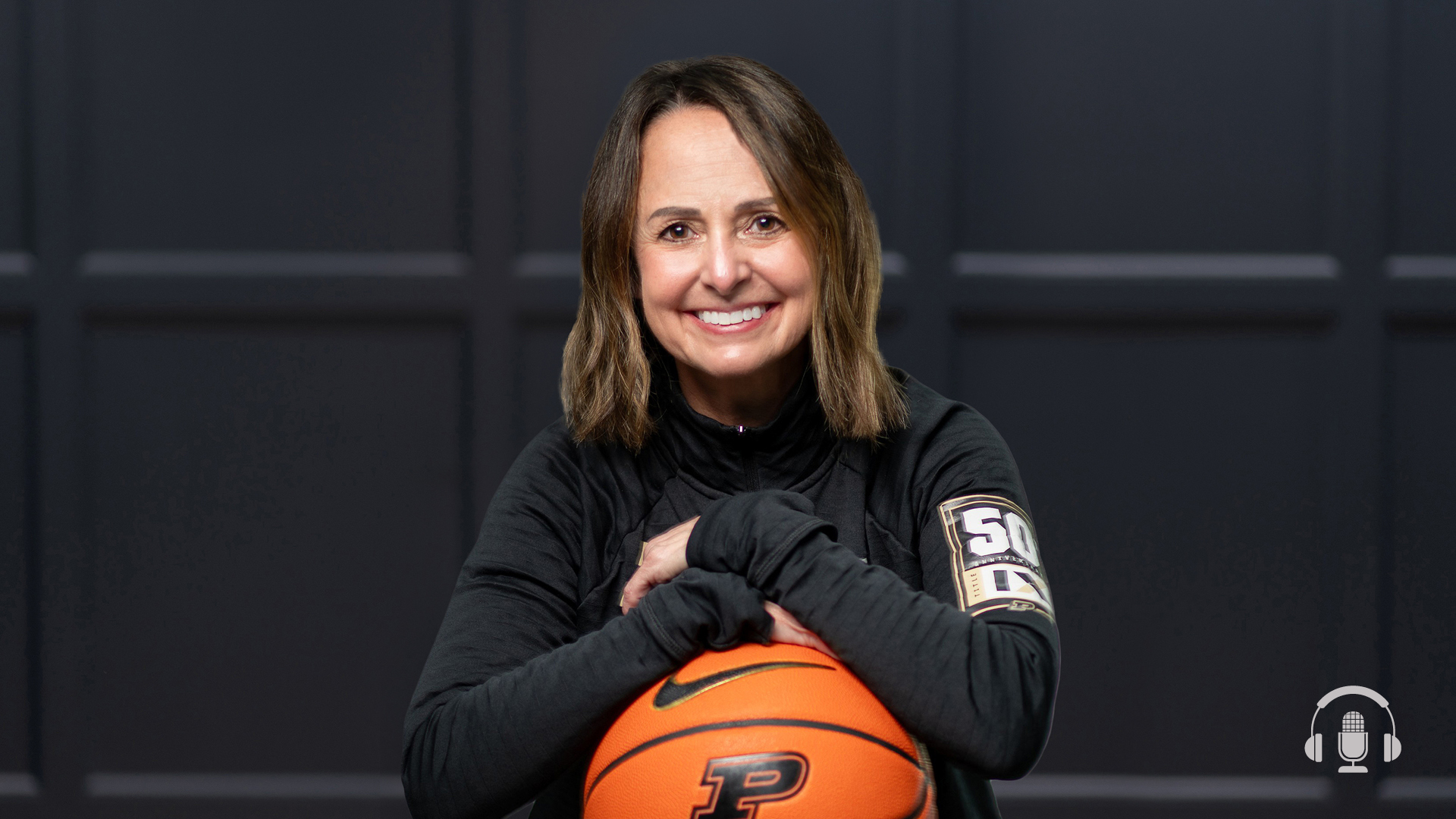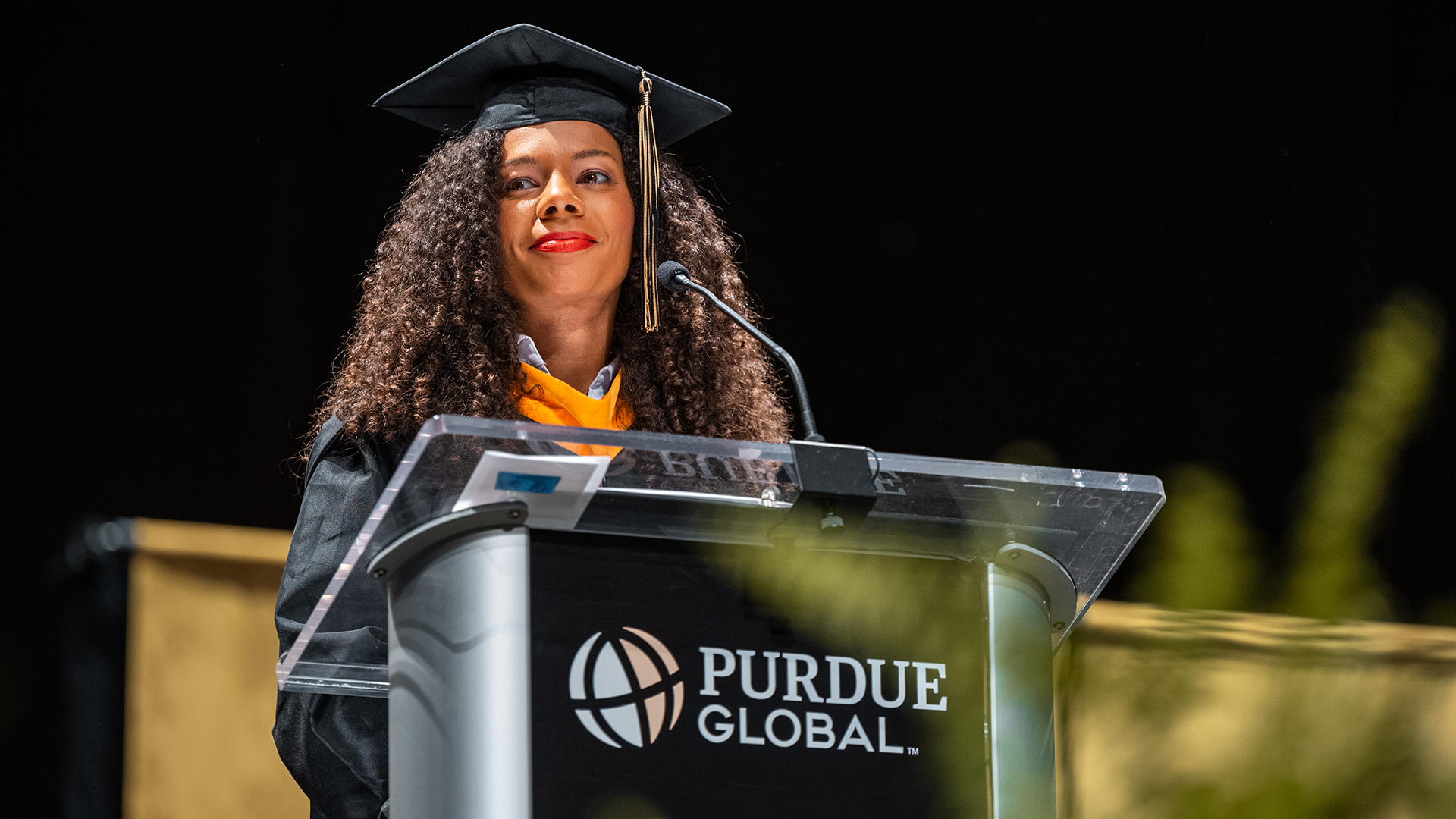2024 Charles B. Murphy Award winners represent five Purdue colleges
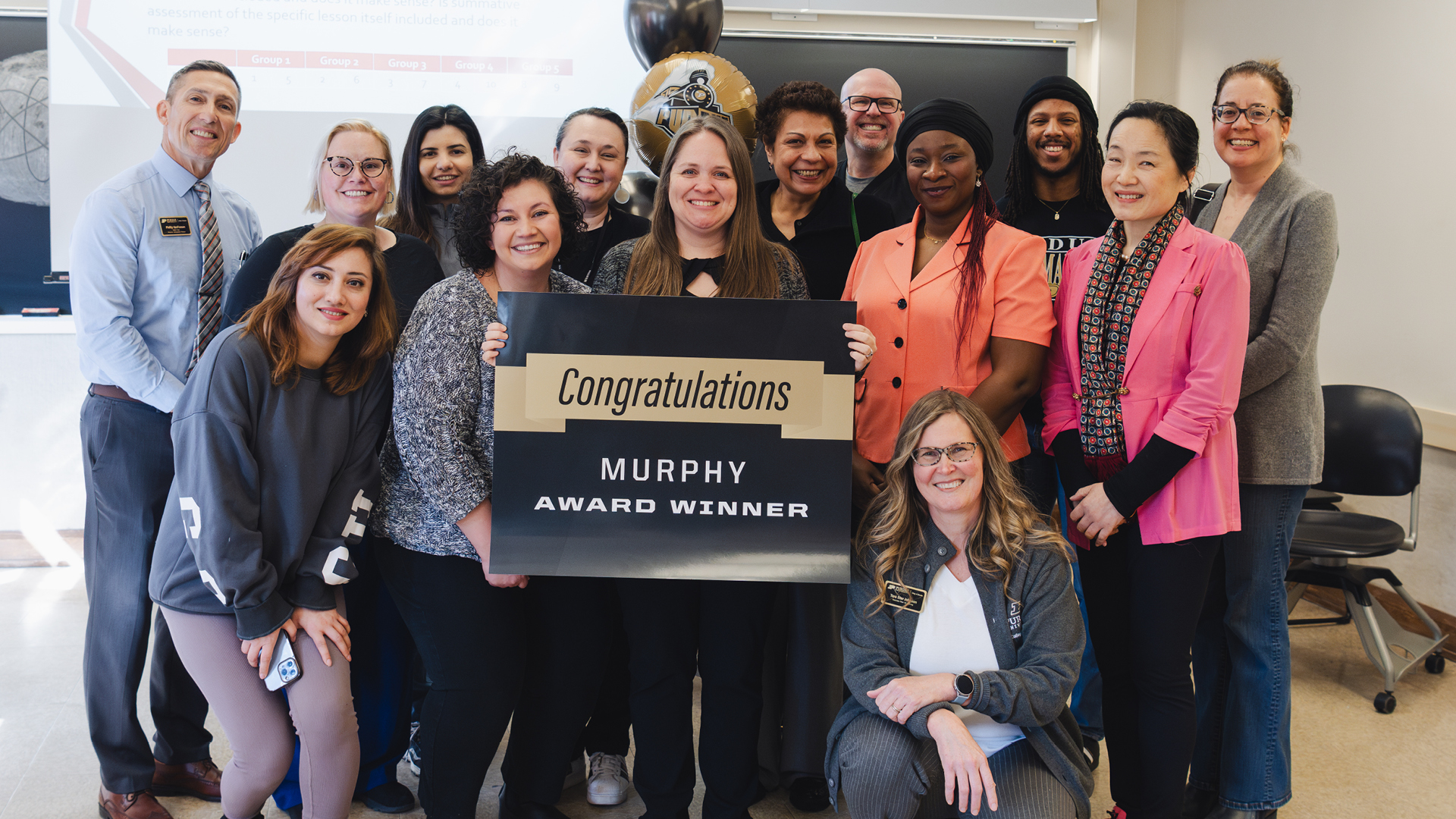
Every spring, Purdue honors instructors who go above and beyond to provide exceptional educational experiences.
The university’s highest undergraduate teaching honor recognizes accomplished educators across campus
This year’s recipients of Purdue’s highest undergraduate teaching honor have not only bettered Boilermakers’ educations but have influenced today’s teaching environment and tomorrow’s workforce. They’re shaping the future from their classrooms. Meet the 2024 Charles B. Murphy Award winners:
Kendra Erk
How do Purdue engineering students learn best? Associate professor Kendra Erk knows from her own experience — she earned her bachelor’s degree from the university. She joined the faculty in 2012 and began leading Boilermakers in materials engineering (MSE).
As an instigator of improvements, Erk has positively impacted Purdue students, as well as the future of education across the state. In addition to ensuring students receive a world-class education in the classroom and research lab, as well as leading the MSE Safety Committee, she has also collaborated with the engineering department at Ivy Tech Lafayette to enrich its curriculum. She has promoted engineering education through her work as a developer and coprincipal investigator on Project UPDATE, a program funded by the National Science Foundation that integrates engineering design principles into soon-to-be teachers’ science lesson plans.
Every day, Erk prioritizes three themes, whether she is instructing students, developing plans or pursuing goals: Be respectful, resourceful and resilient. With the confidence and credibility brought by the Charles B. Murphy Award, she can pursue even more of her ideas. “It provides a platform to make our curriculum better,” she says. “It means so much to me as an educator that this award will help us improve what our faculty delivers and what our students gain.”
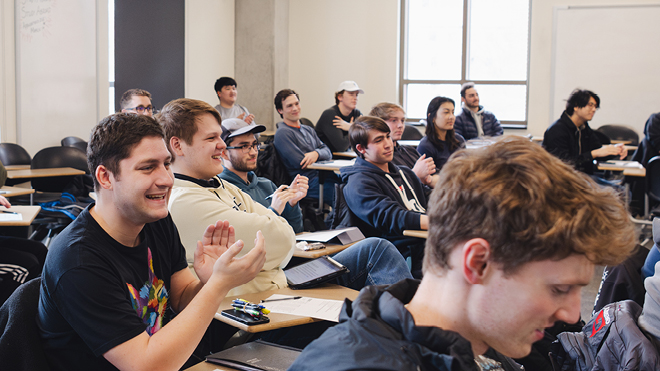
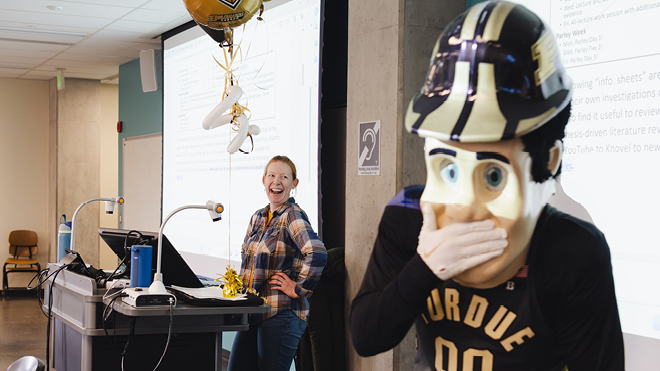
Dino Felluga
Professor Dino Felluga leads English courses, study abroad programs and research projects, adhering to a principle from Leonardo da Vinci: “Knowing is not enough; we must apply. Being willing is not enough; we must do.” His students engage in hands-on lessons that leave them with widened perspectives and deepened understanding.
While instilling curiosity in others, Felluga has invented his own resources and revised classes. His active-learning assignments encourage students’ creativity, from recreating “Citizen Kane” scenes for a film class to presenting on the streets of Italy during a study abroad trip. When he is unable to find the right tools, he builds them himself, including the online resources Introductory Guide to Critical Theory; Britain, Representation, and Nineteenth-Century History; and Collaborative Organization for Virtual Education. He has also written “Critical Theory: The Key Concepts,” “The Encyclopedia of Victorian Literature,” “The Perversity of Poetry” and “Novel-Poetry,” set to be published in September 2024 by Oxford University Press.
“Novel-Poetry” was cowritten with Emily Allen, Felluga’s wife. Allen is an associate professor of English and founding director of the John Martinson Honors College’s Blue Sky Teaching and Learning Laboratory — as well as a 2002 Charles B. Murphy Award winner. “We’re the only couple to both receive the Murphy in the history of the award,” he says. “Purdue’s been supportive of our efforts, and the Honors College has allowed both of us to really engage with the rest of the university.”
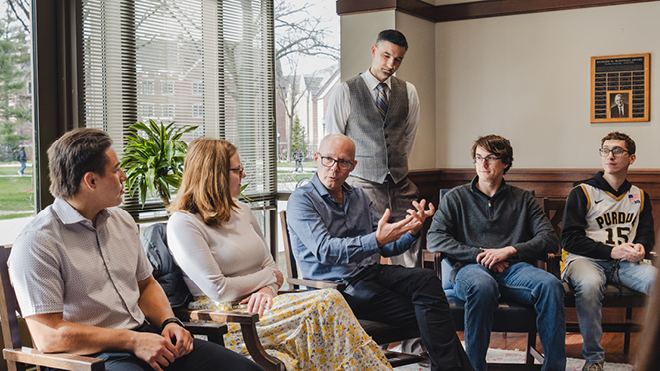
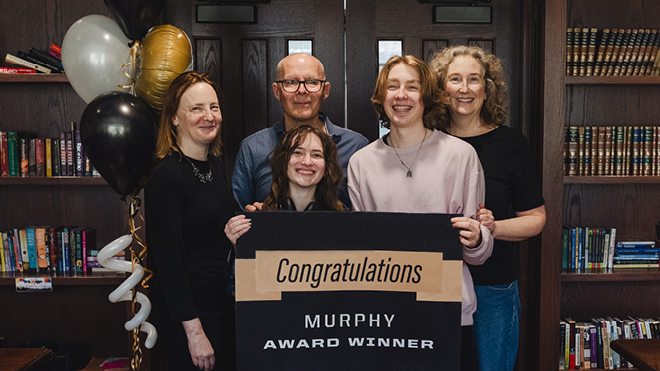
Stephanie Gardner
Approaching teaching and mentoring from a student-centered perspective is essential to supporting Boilermakers in the classroom and beyond — like in research laboratories, which make a biology student’s undergraduate experience more meaningful. “It’s so important to their education,” says associate professor Stephanie Gardner. “Research is where they strengthen interpersonal skills, spark up interests and learn how new knowledge forms.”
Since arriving at Purdue as a lecturer in 2007, Gardner has prioritized evidence-based instructional practices and equitable access to research. She has provided for students on campus by developing Course-based Undergraduate Research Experiences, funded by the National Science Foundation, and training instructors as part of the program. As a coprincipal investigator of Partnering in Research Mentoring for Minoritized Students in STEM, she has helped mentors and mentees at Purdue and Chicago State University. In 2024, she was selected to become a fellow of the Partnership for Undergraduate Life Science Education, a national program that aims to support departments and instructors in improving undergraduate learning of life sciences and other related disciplines.
Serving students not only at the university but across the country is always Gardner’s goal, and the Charles B. Murphy Award is a message to keep going above and beyond. “What drives me is helping students feel like they belong,” she says. “I want them to feel valued and like they have the capacity to master anything they’re trying to learn.”

I want them to feel valued and like they have the capacity to master anything they’re trying to learn.
Stephanie Gardner
Associate professor of biological sciences
Amy Sheehan
What do pharmacists need to know? Understanding medical literature, thinking critically about research, and communicating with peers, physicians and patients are only a few of the role’s many responsibilities. Professor Amy Sheehan prepares Boilermakers for their careers by continuously providing real-world practice.
Sheehan has introduced practical activities, revised review processes and integrated new technologies since joining the Purdue faculty in 1998. The developments of a mock drug question assignment and a drug formulary monograph, which integrate examples from her own work at Indiana University Health’s drug information center, have taught students how to effectively respond to drug-related questions and patient-specific situations. She has also incorporated constructive peer reviews and encouraged student-to-student mentorship to start building networks.
Working with the Innovative Learning hub, Sheehan is implementing artificial intelligence into the peer-review system while educating students on ethical AI usage. “I’m really excited for its impact on teaching and learning,” she says. The Charles B. Murphy Award is a motivator to keep going. “I want to continue to offer the best learning experience for my students.”
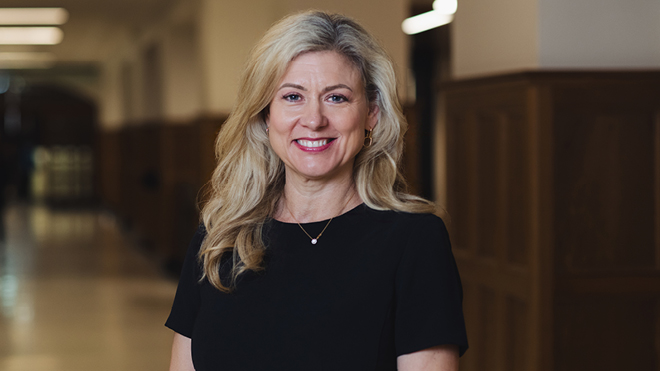
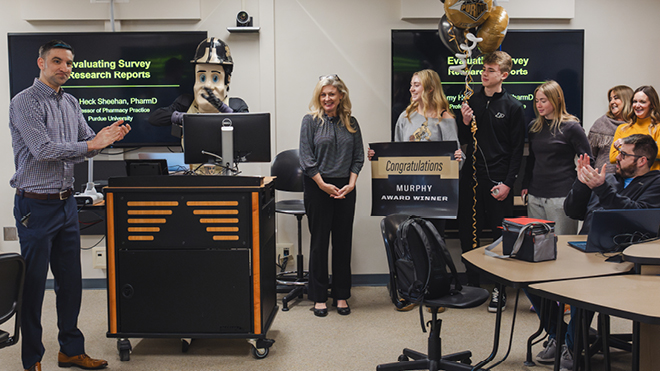
Jennifer Smith
When clinical associate professor Jennifer Smith finished her first day of student teaching, she called her mom and said she knew it was what she wanted to do for the rest of her life. Fifteen years of working in elementary schools and almost five years of educating at Purdue have only brightened that innate spark.
In the College of Education, Smith has illuminated ways for future teachers to connect with students. Focusing on special education curriculums, she has prepared Boilermakers for excellence by improving courses, researching teacher-student dynamics and cofounding the Center for Research and Equipment for Assistive Technology in Education (CREATE) and the Accessible Creative Teaching and Inclusive Opportunities Now! Research Lab. Her involvement in national conferences helps her share ideas across the United States.
CREATE empowers the next generation of learners with accessible resources like software and equipment. Since its establishment, the center has inspired students to create practical solutions. The Charles B. Murphy Award is a recognition for her accomplishments — and encouragement to keep building. “Innovation is one of Purdue’s values, and students are representing that at CREATE,” Smith says. “Now we’re looking into how we can expand and capitalize on all of the amazing progress.”
